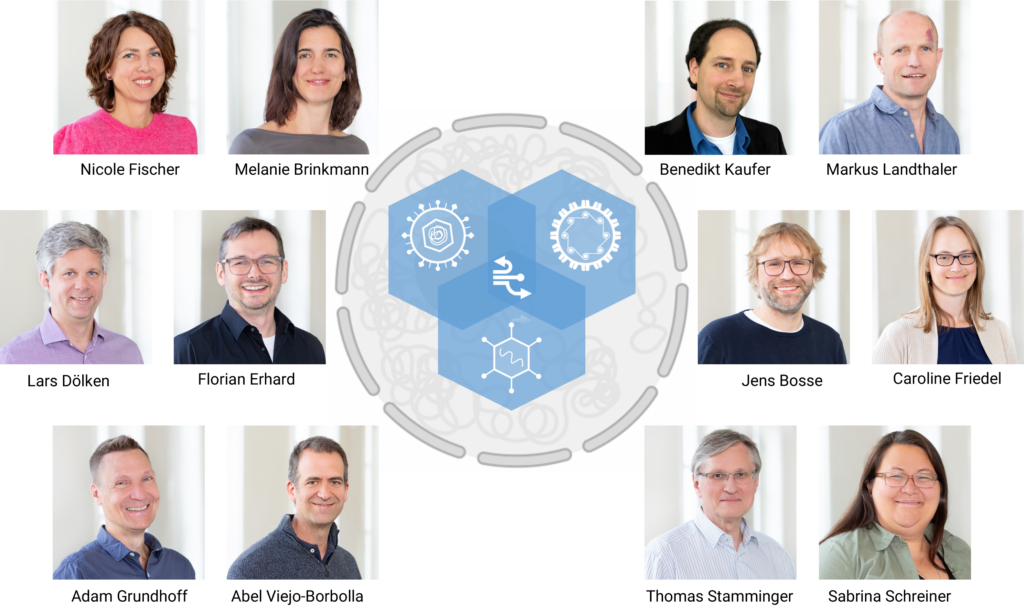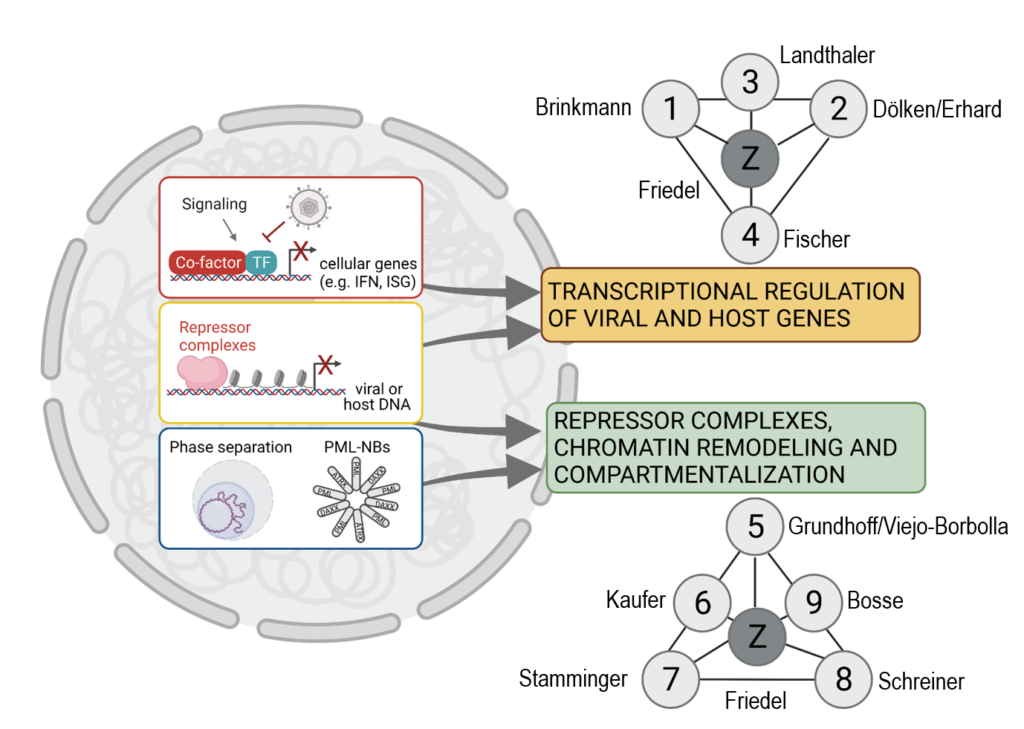Our Research Group
This consortium of molecular biologists and virologists studies the consequences of nuclear DNA virus infections with state of the art technologies.

The individual projects are grouped in two main research areas (Research Area 1 and Research Area 2) and are united by the Z01 project, which is dedicated to integrative functional genomics of the infectious disease models studied in this research unit (RU).

Research Area 1 (RA1) focuses on transcriptional regulation of viral and host gene expression. It includes projects that investigate the type I interferon (IFN) response with respect to transcription of the type I IFN IFNB1 and interferon-stimulated genes (ISGs) downstream of pattern recognition receptor (PRR) and type I IFN receptor (IFNAR) signaling, respectively (P01 Brinkmann, P02 Dölken/Erhard, P04 Fischer), as well as on RNA-binding proteins of viral and cellular origin that impact early transcription events (P03 Landthaler).
Research Area 2 (RA2) focuses on repressor complexes, chromatin remodeling and nuclear compartments. The projects in RA2 synergistically address the question of how viruses exploit or evade cellular chromatin regulatory pathways upon nuclear entry of a naïve viral DNA molecule. P05 Grundhoff/Viejo-Borbolla, P06 Kaufer and P09 Bosse investigate how the cellular context and nuclear compartments may promote lytic replication, or lead to acquisition of global chromatin states that either permit persistence of a transiently silenced viral genome or result in the potentially permanent inactivation of viral genomes. In addition to the role of overall chromatin states, projects P07 Stamminger and P08 Schreiner investigate the role of repressor complexes recruited to distinct genetic elements in the viral genome.
The expertise of the DEEP-DV members anchored in RA1 and RA2 is complemented by the bioinformatics expertise of the Friedel group (Z01), which has a strong focus on functional genomics of infectious disease models. The Friedel group has an extensive track record in integrative functional genomics data analysis and development of new computational methods with a focus on viral infections. ContextMap2, for instance, allows parallel mapping of RNA-Seq reads against multiple genomes, such as host and viral genomes, and identification of polyadenylation sites (pA) from pA-tail containing reads. The workflow management system Watchdog supports the automated analyses of large functional genomics datasets. Friedel will employ her expertise for an integrative comparison of transcriptional and epigenetic regulation in DNA virus infection (Z01) collecting data and results from all DEEP-DV projects. Additional expertise in single-cell analyses and development of bioinformatics methods specifically applicable to viral infections comes from the Erhard group (P02).
